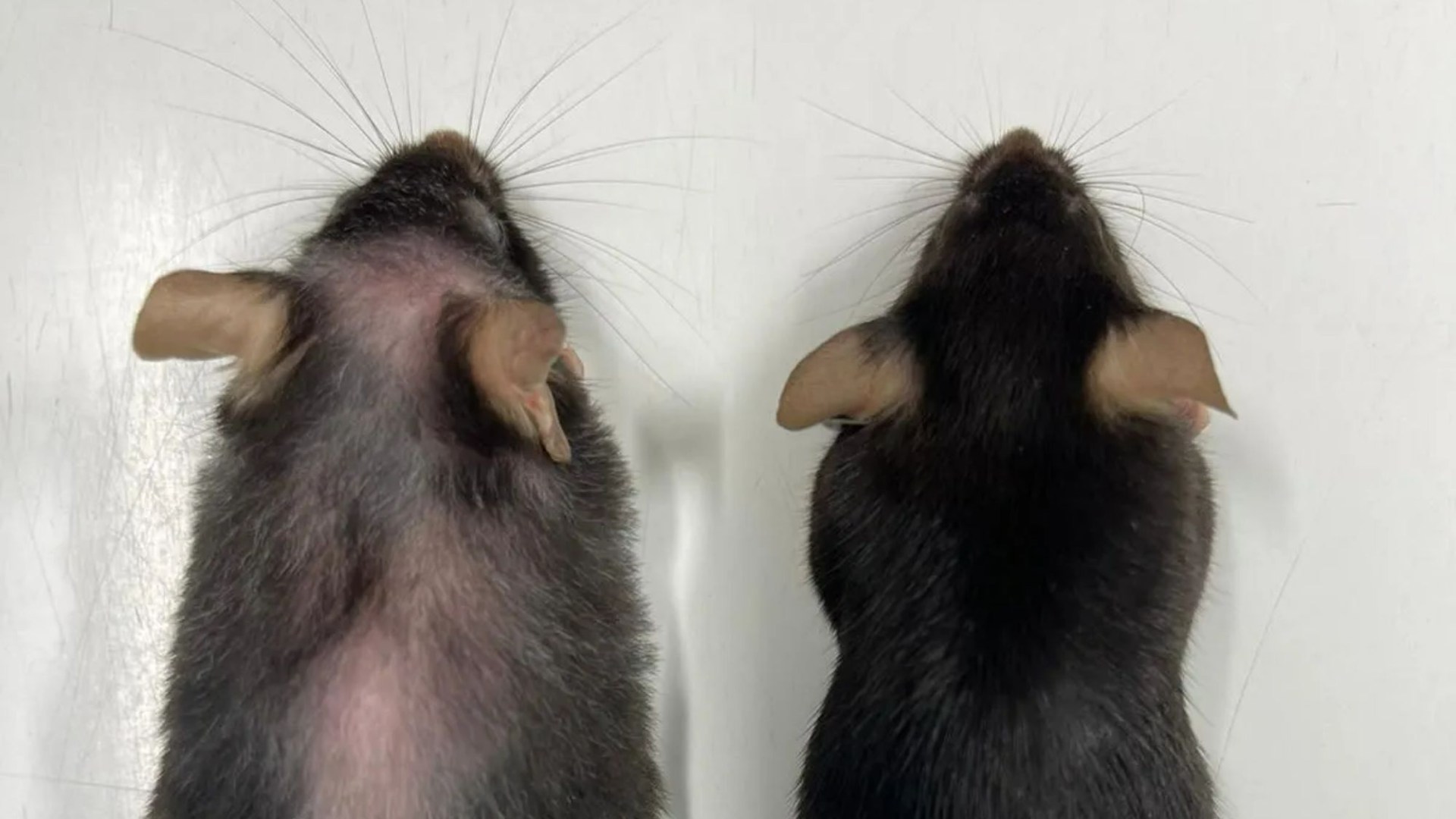A NEW drug has increased the lifespans of mice by nearly 25 per cent – and scientists hope it can have the same effect on humans.
The treated mice were known as “supermodel grannies” in the lab because of how young and healthy they looked.
1
The animals lived healthier lives for longer and developed fewer cancers than their unmedicated peers.
The drug is already being tested on humans, but whether it will have the same impressive anti ageing effects is still unknown.
Scientists have been trying to extend human life for centuries.
In recent times, the type-2 diabetes drug metformin is one of the many drugs being researched for its anti ageing qualities.
Scientists at the Medical Research Council Laboratory of Medical Science and Imperial College London found that switching off a protein called interleukin 11 (IL-11) increased the healthy lifespan of mice.
In humans, levels of this protein increase as people age, and it contributes to higher levels of inflammation in the body.
The researchers believe it is this that flips several biological switches that control the pace of ageing.
The mice that were given treatment to purge IL-11 from their bodies lived for an average of 155 weeks, compared with 120 weeks in untreated mice.
Old lab mice typically die from cancer, however, the mice lacking IL-11 had far lower levels of the disease.
They showed improved muscle function, were leaner, had healthier fur and scored better on many measures of frailty.
‘VERY EXCITING’
Professor Stuart Cook, who was co-corresponding author, from the Medical Research Council Laboratory of Medical Science (MRC LMS), Imperial College London and Duke-NUS Medical School in Singapore, said: “These findings are very exciting.
“The treated mice had fewer cancers, and were free from the usual signs of ageing and frailty, but we also saw reduced muscle wasting and improvement in muscle strength.
“In other words, the old mice receiving anti-IL-11 were healthier.”
He added: “Previously proposed life-extending drugs and treatments have either had poor side-effect profiles, or don’t work in both sexes, or could extend life, but not healthy life, however, this does not appear to be the case for IL-11.
“While these findings are only in mice, it raises the tantalising possibility that the drugs could have a similar effect in elderly humans.
“Anti-IL-11 treatments are currently in human clinical trials for other conditions, potentially providing exciting opportunities to study its effects in ageing humans in the future.”
The scientists tested the effects of the protein by creating mice that had the gene producing IL-11 deleted.
This extended the lives of the animals by more than 20 per cent on average.
They also treated 75-week-old mice – equivalent to the age of about 55 years in humans – with an injection of an anti-IL-11 antibody, a drug which stops the effects of the IL-11 in the body.
According to the findings published in Nature, the mice given the drug from 75 weeks of age until death had their average lifespan increase by 22.4 per cent in males and 25 per cent in females.
WOULD IT WORK FOR PEOPLE?
The question on everyone’s lips is could this drug have the same effect in people? And even if it did, would it be safe?
We won’t know if the same is true in people until clinical trials are conducted, Professor Stuart said.
Multiple trials are underway to test anti-IL-11 therapies in people with certain inflammatory conditions, like as lung fibrosis, but none is investigating its potential anti-ageing effects.
However, the available data suggested the drug was safe to take.
Assistant Professor Anissa Widjaja, who was co-corresponding author, from Duke-NUS Medical School, Singapore, said: “Although our work was done in mice, we hope that these findings will be highly relevant to human health, given that we have seen similar effects in studies of human cells and tissues.
“This research is an important step toward better understanding ageing and we have demonstrated, in mice, a therapy that could potentially extend healthy ageing, by reducing frailty and the physiological manifestations of ageing.”
Ilaria Bellantuono, professor of musculoskeletal ageing at the University of Sheffield, said: “Overall, the data seems solid, this is another potential therapy targeting a mechanism of ageing, which may benefit frailty.”
However, he said there were still problems, including the lack of evidence in patients and the cost of making such drugs and “it is unthinkable to treat every 50-year-old for the rest of their life”.
The effects of IL-11 inhibition in humans remain to be seen.
From skipping dinner to having more sex, nine simple lifestyle changes to live a longer life

SKIPPING dinner, improving balance and snacking on nuts are just some of the key things we can do to ensure we live a long life.
In his latest book, How Not To Age, Dr Michael Greger highlights the science- backed solutions that can help avoid the diseases most associated with ageing.
The 51-year-old US medic says: “Instead of our current, piecemeal approach of focusing on individual degenerative diseases, what about slowing down the ageing process?
“The good news is there are so many things we can do to increase longevity — we have so much power in our own choices.”
Here are some of Dr Greger’s simple lifestyle changes you can adopt today.
FAST WORK: Fasting gives our system a much-needed break from carrying out its digestive duties.
It means our cells can do anti-ageing work like combating free radicals and inflammation.
Many people choose to skip breakfast or delay meals until the second half of the day, but the key is to skip dinner.
GO GREEN: The lifestyle factor most closely associated with ageing is how much fruit and veg you eat.
Plants have biological processes that allow them to thrive, and we can harness these powers by eating them.
Green leafy vegetables should be on your plate every day because they help the immune system and fight the effects of air pollution.
GUT FEELS: The bacteria in our gut play a wider role throughout the whole body.
A happy gut microbiome supports immunity, mental health and the balance of hormones — all of which can affect the risk of disease.
A flourishing gut may even reduce asthma attacks.
The gut loves fibre, so plate up legumes and whole grains, such as brown rice, oats, rye and spelt.
MOVE IT, MOVE IT: Regular exercise lowers inflammation, decreases DNA damage and ensures we are functioning cognitively.
It also boosts FGF21, a fasting hormone which is a key component of longevity.
Plus walking after a meal can lower blood sugars as effectively as some blood sugar-lowering drugs.
Even exercising for 20 minutes may add an hour to your life — a really good return!
IMMUNE BOOST: The immune system naturally declines with age.
In the developed world, infectious diseases are the fourth-leading cause of death among the elderly.
Vaccines do not often work as well for older people because the immune response is not as strong.
Sufficient antibody protection is found in 50 to 75 per cent of young people but this figure falls to ten to 30 per cent in older adults.
Regular exercise, getting enough sleep and eating more fruit and veg can support the immune system, as can meditative activities that lower stress.
BUNGED UP: Not only is constipation uncomfortable, but it can be a precursor for other ailments.
If you strain to go to the loo, you are at risk of developing a hiatal hernia.
Straining can also cause heart rhythm disturbances and a reduction in flow to the heart and brain, which may result in defecation-related fainting or even death — a syndrome known as bedpan death.
BRAIN GAMES: The average time between a dementia diagnosis and dying is five years.
But dementia is not an inevitable consequence of ageing.
The best advice is what is good for the brain is good for the heart — keeping your blood pressure and cholesterol low helps both organs.
Vegetables, legumes, fruits and whole grains should ideally replace meat and dairy products as primary staples of the diet.
SEXUAL HEALING: Physical health problems get in the way of bedroom antics in older life.
But sex has protective physical and mental health benefits.
Endorphins are feel-good chemicals that are released during sex and have been shown to improve cell function.
Healthy habits can also reduce the risk of issues such as erectile dysfunction.
- How Not To Age: The Scientific Approach to Getting Healthier As You Get Older by Dr Michael Greger (Bluebird, £22) is out now.




